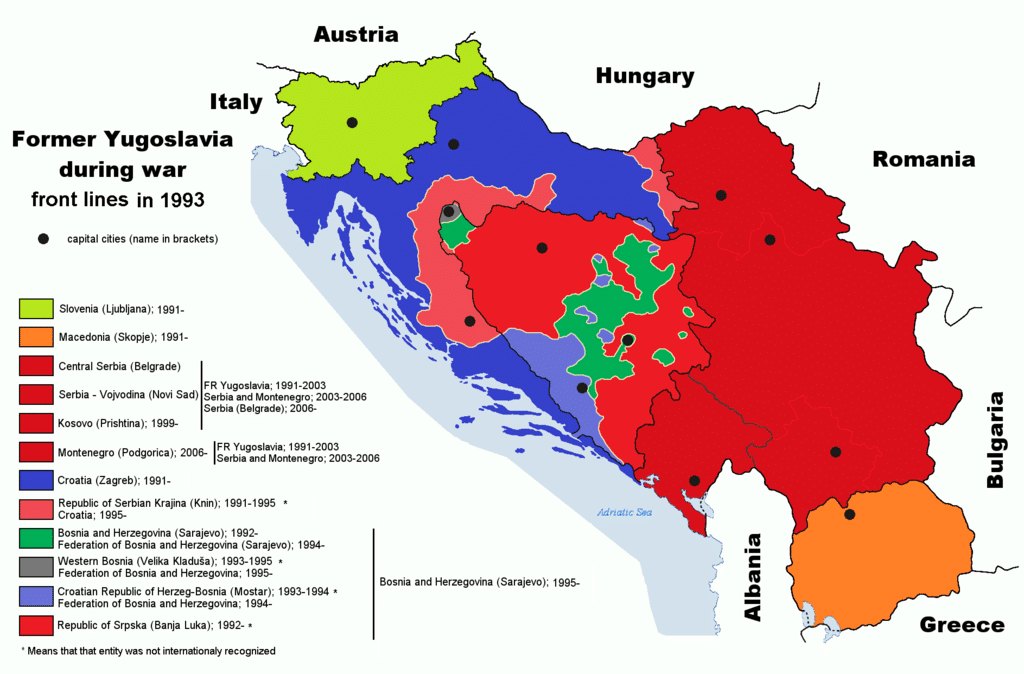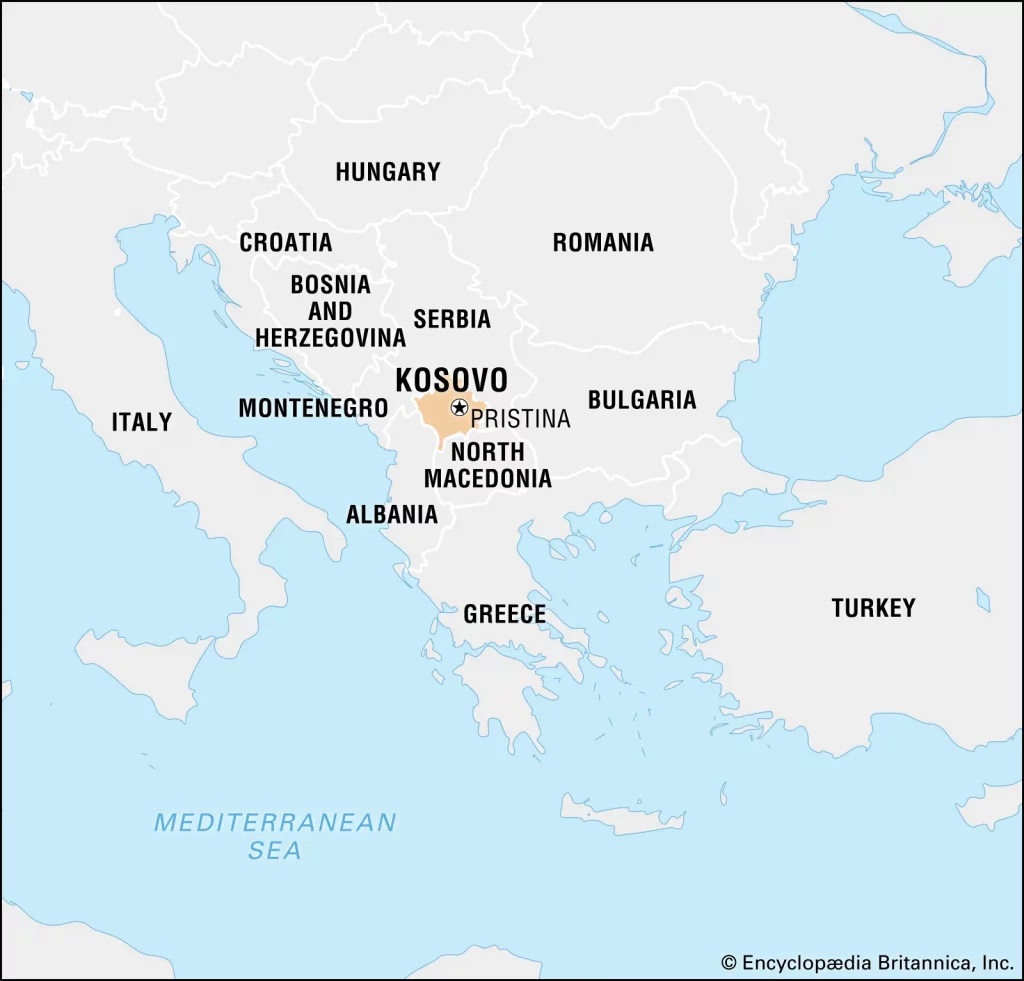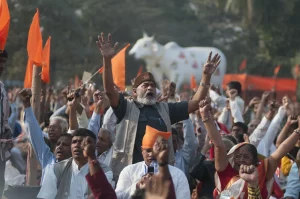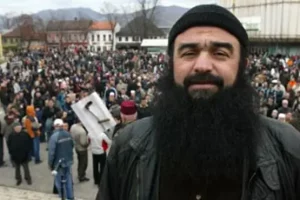#Current Affairs
History Of The Bosnia War [Part 2] – The Continuing Relevance Of The Bosnian Genocide
The Bosnian genocide’s legacy endures in Balkan geopolitics, global ethnonationalism, and Western indifference to anti-Muslim violence.
Published
By
Ibrahim Moiz
Still Relevant
The Bosnian genocide that reached a pinnacle thirty years ago provoked widespread grief and horror both among Muslims and in the “West”. Yet little has been learned from the Bosnian tragedy, whose lessons continue to be relevant today both in Bosnia itself and in the wider world. This article will examine how the Bosnian genocide and issues around it retain relevance today.
The United States and Europe’s Sphere of Influence
The most obvious point of relevance is, of course, the fact that the United States and much of the rest of Europe still treat the former Yugoslavia as a “sphere of influence”, with regional envoys and ambassadors acting more as suzerains among squabbling vassals. In the case of Bosnia this was rendered official through the 1995 Dayton Accord, which entrenched the Serb-majority areas as a “state within a state” and insisted on a cyclically rotating leadership, based on ethnic group, that precluded any real settlement, truth, or reconciliation.
Keep supporting MuslimMatters for the sake of Allah
Alhamdulillah, we're at over 850 supporters. Help us get to 900 supporters this month. All it takes is a small gift from a reader like you to keep us going, for just $2 / month.
The Prophet (SAW) has taught us the best of deeds are those that done consistently, even if they are small. Click here to support MuslimMatters with a monthly donation of $2 per month. Set it and collect blessings from Allah (swt) for the khayr you're supporting without thinking about it.
The respite that the Serb ethnonationalists received via the American war would encourage Serbia to turn on Albanians in Kosovo; when this happened, the United States flung on the mantle of rescuer and bombarded them so fiercely that they were forced to retreat. Washington then adopted the Kosovo region, which became an officially independent country in 2008 yet still retains enormous American influence, so that in recent years attempts to break away from American tutelage have met with regime change.
This means that the Yugoslavia conflict was never resolved but only “frozen”, and Serb irredentism unchecked: as recently as 2020 Washington urged a regime change against a Kosovo government seeking to break free from the American fold, and threatened the same government after it was voted back in power and confronted Serb irredentists. It is ironic that the United States’ continuing hegemony in the Balkans requires a maintenance of the same divisions whose resultant war Washington had claimed to stop in the 1990s.
Ethnonationalism and its Muslim Victims
Outside the region, there are eerie similarities between much contemporary nationalist politics and the Yugoslavia case. The way that Serb ethnonationalism, and to a lesser extent its Croat counterpart and rival, trained on an “alien” Muslim enemy was key both to the former Yugoslavia’s collapse and the Bosnian genocide.
With the officially universalist ideology of socialism in retreat, the 1980s saw a surge of nationalism throughout Yugoslavia, and this was most damagingly harnessed by Serbia premier Slobodan Milosevic. He attained a mass following largely by presenting Yugoslavia’s supposedly cosmopolitan establishment as indulgent toward ethnically-Albanian Kosovar criminality at the expense of the gallant Serbs. Yugoslavia had long feuded with Albania and this lent venom to the idea that Yugoslav Albanians were a fifth column, though in fact the crimes attributed to them were equally to be found among other groups.
In fact, of course, the Yugoslavia establishment was quite accommodating to Serb ethnonationalism, particularly under Milosevic, but the very fact of minoritarian participation meant that he could portray himself as champion of the Serbs and harness state resources toward Serb supremacism. From Kosovars to Croats and then Bosnian Muslims (Bosniaks) Serb ethnonationalism espoused by Milosevic, and taken even further by many regional ethnonationalists, found one enemy after another and provoked a backlash.
In the particular case of the Bosniaks, the Muslim factor was particularly key: they were presented as either the descendants or easily-led collaborators of Ottoman Turks, and various ideologists—even Biljana Plavsic, who briefly sat on Bosnia’s elected council—espoused racialist ideologies to argue for their inferiority. The parallels with numerous, mainly but not exclusively far-right, parties in and outside the West today are too obvious to notice.
Modern Parallels
Geert Wilders in the Netherlands made his career with sustained vilification of Muslims. Germany’s far-right competes with establishment “centrist” Friedrich Merz, who describes Arabs in animalistic terms. France has long been infamous for homogenizing autocracy against minorities in general, and Muslims most particularly under the cover of laicite.
In the same way as Milosevic fixated on Albanian “criminality”, various British far-right parties have adopted a racially selective approach to the issue of crime and sexual abuse and grooming gangs, which are to be demonstrated against only if of a certain hue and background; rabidly anti-Muslim minister Michael Gove contrived a much-hyped scandal by claiming that Islamists were trying to infiltrate British education. A large number of American politicians, especially those closest to Israel, have made careers of impunging Muslims.
Nor is this an exclusively Western phenomenon: the attempt of India’s Hindutva trend to expunge Muslims from Indian society has ranged from total revisionism of the same sort that Serb ethnonationalists pursued against Bosniaks to everyday organized harassment to massacres, among whose key architects Narendra Modi was rewarded by becoming prime minister. Media, of both rightwing and liberal variety, is often willing to play along.
Though European states have made a habitual policy of issuing condolences every July, it appears that few have learned the lesson. This is epitomized in the glib condolences on the Bosnian genocide issued by European Union leader Ursula von der Leyen, herself an unambiguous supporter of a genocidal Israeli state whose extermination campaign against Palestinians has relied on much the same rabid anti-Muslim viciousness and often the same strategies, such as ethnic cleansing for territorial supremacy, that the Serb ethnonationalists used in Bosnia.
Western Indifference
It should be noted that, much as Israel’s anti-Muslim propaganda found a willing ear in Europe and North America, even the Bosnia of the 1990s was viewed with callous indifference if not outright hostility by major European leaders. Francois Mitterrand bluntly rejected the idea of Bosnia as a viable European state; any doubt that this was related to Islam could be cleared by the remarks of British officials who spoke of a “painful but realistic restoration of a Christian Europe”.
Despite a centuries-long heritage, Bosnia’s Muslims were viewed not only by random bigots but at the top levels of government as alien by virtue of their Islam. That so many Bosnians held onto Islam in such circumstances is a remarkable feat and a sign of Allah’s favour. Decades of secularization in the Balkans at large has led to a frequent tendency to view Bosniaks as only nominally or culturally Muslims, yet their commitment to their religion and identity under the harshest duress was remarkable.
Foreign Governments: Sympathy and Muted Support
One major difference between the 1990s and the current period was the initiative of many Muslims, both governments and private individuals, in attempting to alleviate Bosnia’s plight. A United Nations embargo, which practically left Bosnia defenceless against already-armed opponents, came under considerable criticism from Muslim countries; though several joined the United Nations peacekeepers, they were vocally critical of the mission’s passiveness.
Pakistani units led by Qasim Qureshi, Bangladeshi units by Fazlur-Rahman, and Egytian units led by Hussein Abdel-Razek manned important fronts but made no secret of their discontent, particularly at the inequity of the embargo. In fact Pakistani spymaster Javed Nasir made an attempt to break the embargo, for which the United States pressed Islamabad to sack him in spring 1993.
Gulf States Humanitarian Aid and Frictions

Hasan Cengić, Bosnian Finance Minister (1992–1995), known as the “Flying Imam” for his diplomatic fundraising flights.
It was only a year later, when Washington was able to mediate between its primary vassal Croatia and Bosnia, that it turned a blind eye to Iranian weapons, sent by Ali Fallahian and Akbar Torkan. Other governments, such as the Gulf states, sent humanitarian and financial support, particularly such Gulf states as Saudi Arabia—handled by future king Salman bin Abdul-Aziz, who had experience doing the same for Afghanistan’s anticommunist insurgency in the 1980s—and Kuwait.
The Bosnian finance minister Hasan Cengic, whose frequent journeys abroad to obtain support earned him the moniker of “Flying Imam”, particularly aimed to get support. Valuable as donations were, they were occasionally delivered through zealous advocates of the Islamic schools predominant in Arabia, who would occasionally object to what they perceived as Bosniak irreligiosity.
One tract by a foreign volunteer, using Kuwaiti official channels, to chide the Bosniaks for what allegedly incorrect religious practices provoked a sharp response from Bosniak preachers such as Dzemaluddin Latic and Enes Karic: not only were Bosniaks emerging from years of enforced secularism but their school of Islam anyway differed. These frictions were relatively rare but were later exaggerated for political reasons after the United States assumed the role of suzerain in the Balkans: they were used to portray foreign Muslims at large as intolerant fanatics unaccustomed to Bosniak tradition.
The Cost of Paranoia: Foreign Fighters and Their Betrayal
Undoubtedly the most famous aspect of foreign support were mostly Arab foreign fighters recruited to the Bosniak army. These came largely independent of state support, though Bosnia’s opponents accused Sudanese diplomat Fatih Hassanain of recruitment. The best-known figure, though he actually left Bosnia quite early on other commitments, was Hadrami recruiter Mahmoud Bahadhiq, known as Abu Abdul-Aziz Barbaros for his red beard.
Muhammad Habashi (Abul-Zubair), from Makkah, was another Arabian volunteer who set up a volunteer battalions. A Hezbollah force from Lebanon, led by Ali Fayad, also arrived in support. The Bosnian army set up units, led by Asim Koricic, Amir Kubura, Serif Patkovic, and Halil Brzina, to work with the Arabs, as did local volunteers organized by the preacher Nezim Halilovic. The most famous foreign Muslim unit was led first by a Libyan doctor, Abul-Harith, and then Jamal Abul-Maali.
Media Propaganda and Smear Campaigns
Not only did Serbian media vilify these foreign fighters to scaremonger about a Muslim invasion on the gates of Europe, but their propaganda found welcoming ears abroad. Several Israeli writers and analysts poisoned the discourse. A case in point is Yossef Bodansky, a rabidly anti-Islam “expert” for the American congress. He acted on behalf of both the Israeli and Serbian governments, and regularly scaremongered about Bosnia’s “radical” regime: over the next fifteen years he would produce similar alarmist propaganda ranging from Chechnya to Sudan. Anti-Muslim alarmists such as Steven Emerson also made their name in American security circles by scaremongering on Bosnia.
The upshot was that the American “rescuers” of Bosnia were singularly suspicious of “Islamism” in Bosnia and sought to contain it. The 1995 Dayton Accord, which institutionalized ethnic cleansing campaigns against Bosnia under an American protectorate, was accompanied by the assassination of Abul-Maali, which was widely suspected on American intelligence. Just months earlier a more radical militant who had taken refuge in Denmark, Talaat Qassem, entered the Balkans, only to be abducted at Croatia in the first “extraordinary rendition” carried out by American intelligence. Qassem had links with Ayman Zawahiri’s insurgent organization against Cairo, and an acquaintance with Anwar Shaaban, another Bosnia volunteer who disappeared at about this point. Such episodes were used in a guilt-by-association smear campaign accusing Bosnia volunteers at large as Qaeda: after 2001, this became an entire sub-genre within the counterterrorism industry.
Consequently the United States also became more paranoid against foreign Muslims in Bosnia. Many Arab fighters had married and lived law-abiding lives in Bosnia after the war, with the protection of Alija Izetbegovic’s government. After Izetbegovic died, the United States exerted increasing pressure on Sarajevo to monitor or expel the Arabs, warning that their retention might jeopardize Bosnia’s entry into the European Union. In the late 2000s the United States systematically undermined Bosnian interior minister Tarik Sadovic, complaining that he would not crack down on the Arabs.
“They Look Alien”
Exploiting and exaggerating the brief religious friction between Arabs and Bosniaks from the 1990s, American diplomat Raffi Gregorian tried to portray a crackdown on Arabs as a defence of Bosniak tradition against fanatics: “They look alien,” he snapped. “They talk alien. They act alien. This is a parochial society that has its own approach to Islam, and they don’t fit in.” In the prevalent paranoia of the “war on terror” there was simple scope to remark on the irony of an American diplomat asserting who was and was not alien to Bosnia, about Arabs who had risked their lives to help the country against a genocide. The contrast with the glowing coverage of, for example, foreigners fighting in Ukraine—even those of pointedly radical, such as far-right, colours—is too stark to miss.
The truth was of course that these “aliens” had risked their lives to help Bosnia against the hostility or indifference of various foreign states, and even the helpless political inaction of most Muslim countries. With little meaningful justice for Serb genocidaires, it is hardly a surprise that in recent years Milorad Dodik, the unrepentant leader of this Bosnian-Serb unit, has aggressively resorted to the same sort of rhetoric that coloured the genocide, nor that Bosnia’s governments have generally been helpless to do much about it. The genocide remains keenly relevant in Bosnia because the rhetoric and political frameworks that incited it run rampant under the American-European aegis.
Conclusion: Lessons Still Resonate
The Bosnian genocide is also relevant abroad. For millions of foreign Muslims in the 1990s it was a shocking reminder of the depth and extremes of anti-Muslim nationalism; for minority Muslims in particular it served as a wake-up call to how far supposedly neutral institutions might go to shield the worst anti-Muslim crimes. With an even bloodier genocide taking place today that has killed, maimed, starved, and expelled Palestinians by the millions in the most sadistic ways; the strained efforts of various institutions throughout the West to deny the evidence of their eyes in favour of Israel; and the impunity with which Israel’s supporters regularly incite anti-Muslim animus from Amsterdam to Los Angeles—the lessons of the horrors experienced by Bosnia’s Muslims in the wreckage of Yugoslavia resonate with us today.
Related Posts:
History of the Bosnia War [Part 1] – Thirty Years After Srebrenica
Keep supporting MuslimMatters for the sake of Allah
Alhamdulillah, we're at over 850 supporters. Help us get to 900 supporters this month. All it takes is a small gift from a reader like you to keep us going, for just $2 / month.
The Prophet (SAW) has taught us the best of deeds are those that done consistently, even if they are small. Click here to support MuslimMatters with a monthly donation of $2 per month. Set it and collect blessings from Allah (swt) for the khayr you're supporting without thinking about it.
Ibrahim Moiz is a student of international relations and history. He received his undergraduate degree at the University of Toronto where he also conducted research on conflict in Afghanistan and Pakistan. He has written for both academia and media on politics and political actors in the Muslim world.


Courting The Crosswinds: The Tragedy Of Saif Al-Islam Qaddafi

Parenting Through Times Of Fear, Injustice, And Resistance: A Trauma-Informed, Faith-Centered Guide

Recognizing Allah’s Mercy For What It Is: Reclaiming Agency Through Ramadan

[Podcast] Dropping the Spiritual Baggage: Overcoming Malice Before Ramadan | Ustadh Justin Parrott

Far Away [Part 8] – Refugees At The Gate

[Podcast] Should Muslims Ally with Conservatives or Progressives? | Imam Dawud Walid

Op-Ed: From Pakistan To Gaza – Why Senator Mushtaq Ahmad Khan Terrifies Power And Zionism

How to Make this Ramadan Epic | Shaykh Muhammad Alshareef

[Podcast] The Parts of Being an Imam They Don’t Warn You About | Sh Mohammad Elshinawy

Keeping The Faith After Loss: How To Save A Grieving Heart

[Podcast] Guardians of the Tradition: Muslim Women & Islamic Education | Anse Tamara Gray

How to Make this Ramadan Epic | Shaykh Muhammad Alshareef

[Dhul Hijjah Series] Calling Upon the Divine: The Art of Du’a (Part 1)

IOK Ramadan 2025: Four Steps | Sh Zaid Khan

IOK Ramadan 2025: Do Your Best | Sh Zaid Khan
Trending
-
#Current Affairs1 month ago
An Iqbalian Critique Of Muslim Politics Of Power: What Allamah Muhammad Iqbal’s Writings Teach Us About Political Change
-
#Current Affairs4 weeks ago
[Podcast] Should Muslims Ally with Conservatives or Progressives? | Imam Dawud Walid
-
#Current Affairs4 weeks ago
Op-Ed: From Pakistan To Gaza – Why Senator Mushtaq Ahmad Khan Terrifies Power And Zionism
-
#Culture1 month ago
The Muslim Book Awards 2025 Winners











